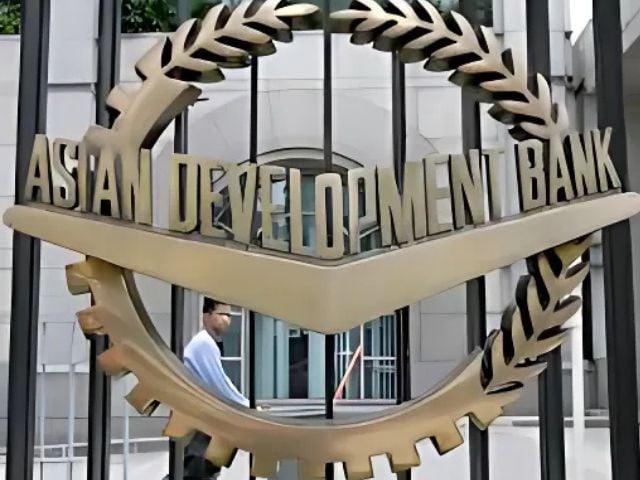The Asian Development Bank (ADB) has approved a financial package of $ 800 million for Pakistan under the Resource Mobilization Reform Program (Subprogram-II).
According to the Ministry of Finance, the package includes a policy -based loan (PBL) of $ 300 million and a guarantee based on $ 500 million programs (PBG).
This significant development is the result of the joint diplomatic efforts of the Ministry of Economic Affairs and the Ministry of Finance.
The initiative aims to improve the mobilization of national resources and stabilize the economy through financial reforms, Ministry officials said.
They added that support will help improve the fiscal system, increase income and promote fiscal discipline.
The program is also expected to expand the country’s income base and mark a key step towards economic self -sufficiency.
Read The ADB Board meets on June 3 to approve the Pakistan package of $ 800 million
According Annual Report of Asian Development Perspectives 2025Pakistan’s true Gross Domestic Product (GDP) is expected to grow in 2.5% in fiscal year 2025, maintaining the same growth rate as in fiscal year 2024.
ADB projects that Pakistan’s growth will increase to 3.0% in fiscal year 2010.
“Pakistan’s economy has benefited from better macroeconomic stability through a solid reform implementation in areas such as fiscal policy and viability of the energy sector,” said AdB director of Pakistan country Emma Fan.
“The growth is expected to persist in 2025 and will increase by 2026. The sustained implementation of policy reforms is vital to reinforce this growth trajectory and strengthen fiscal and external shock absorbers.”
Previously, ADB had postponed the approval of a financing package of $ 800 million for Pakistan for five days at the request of India that sought time to evaluate loan documents, exposing failures in the lender’s rules book that allows such extensions.
The meeting was rescheduled until June 3, government officials added.
Read more: Pakistan, ADB partner to promote climatic resilience
When it was contacted, the Secretary of Economic Affairs, Dr. Kazim Niaz, confirmed that the meeting of the ADB Board was scheduled for May 28, but has been postponed for five days at the request of the Indian Executive Director.
The secretary said that, according to ADB rules, any director can seek a unique extension on the date and India benefited from this rule.
The ADB country office did not respond to a request for comments on development.
The Indian movement occurred after it could not block the approval of the second section of loans worth $ 1 billion by the International Monetary Fund.
The postponement of ADB emphasizes that the Pakistani representatives in the World Bank, the IMF, the Asian Infrastructure Investment Bank and the ADB will have to adopt a proactive approach to protect the economic interests of the country.
Also read: India approves the stealthy reaction plan in the midst of tensions with Pakistan
After facing the defeat at the hands of the Armed Forces on the battlefield, India has begun to press against the economic interests of Islamabad.
The postponement of five days has not affected Pakistan’s external financing plans and the money is expected to flow in the accounts of the Central Bank after the approval of the Board on June 3.
The tensions between India and Pakistan intensified on April 22, after an attack in the Pahalgam area of Jammu and Kashmir occupied by India and Kashmiro killed 26 people. India blamed Pakistan for the incident without providing any evidence. Islamabad denied India’s claims and requested an independent investigation.
India suspended the 65-year-old Indus Water Treaty, canceled visas and the closure of border crossings that lead to Tit -for-OT measures by Pakistan.
The military commitment intensified even more with missile attacks on May 7 aimed at several cities in Punjab and Azad Jammu and Kashmir, followed by Pakistan that disappointed Indian combat planes.
As hostilities increased, both countries launched military attacks, with India hitting the Pakistani air bases and pakistan reprisals damaging the storage sites of Indian missiles and other strategic objectives.
By May 10, diplomatic efforts led by the United States resulted in a high fire agreement, although both countries continue to participate in a war of narratives.




